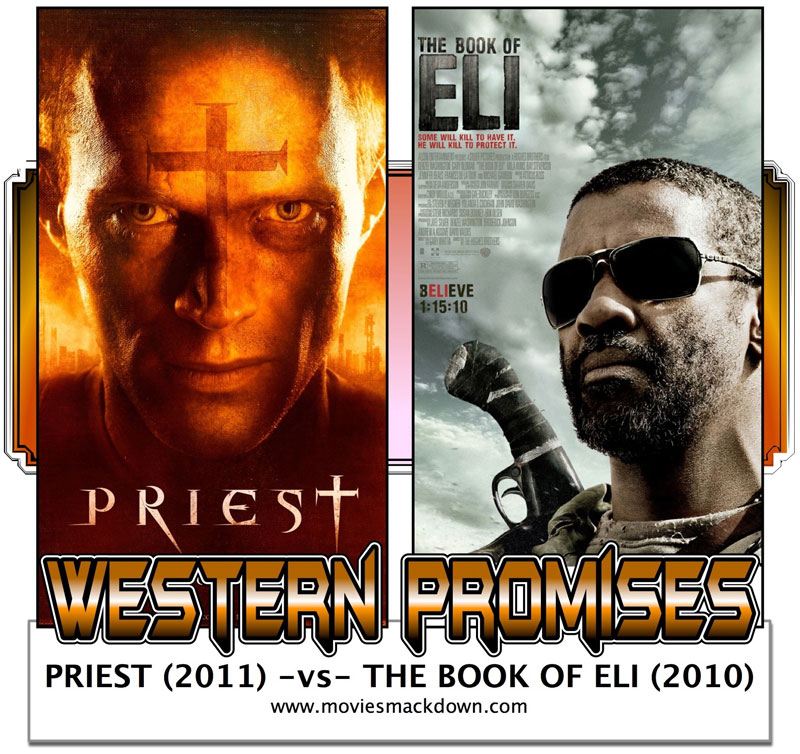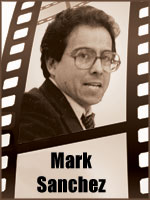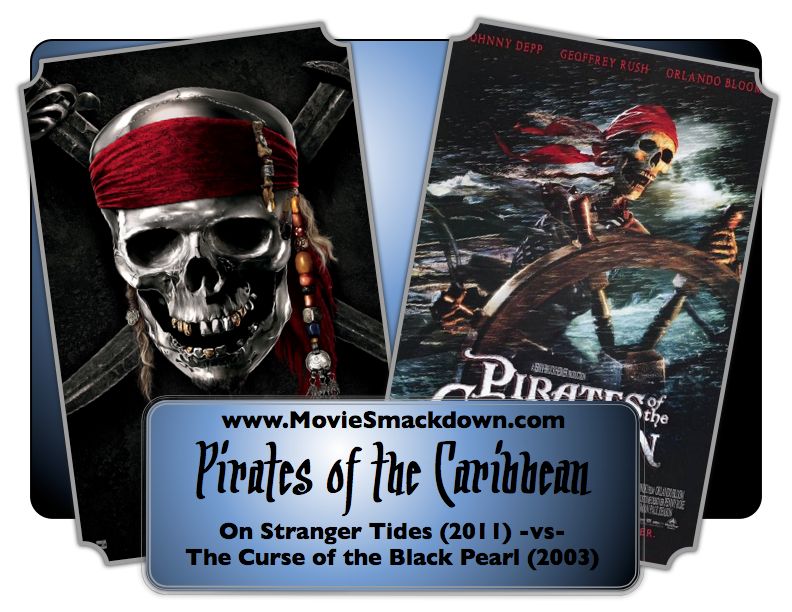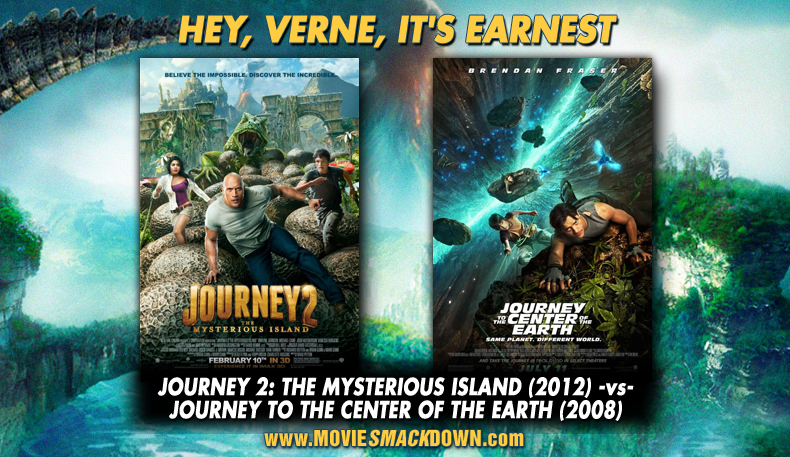
 The Smackdown
The Smackdown
A Western is a Western, even if there are no trusty horses, Native Americans, brave pioneers, land barons or cowboy hats (or even cowboys). The stereotypes don’t have to be in play so long as the archetypes are.
These days we regularly construct our western mythology out of the apocalypse, looking to the dismal future and not the hardscrabble past.
Both our combatants today share a common set up: Catastrophe strikes. Society falls apart. Survivors fight over the remaining pieces. This formula usually includes A Brooding Outsider and Someone in Distress. When you add monsters / mutants you have the rough outline of recent popular movies like I Am Legend, The Road, even The Road Warrior from 1982. The list is longer, but you see where I’m going.
What we have now is the hybrid genre of the Apocalypse-Western. This sturdy form is identifiable with or without those horses and a strong silent hero because it still showcases the sense of honor, justice and redemption that motivated John Wayne as the Ringo Kid in Stagecoach (1939) and Clint Eastwood’s Bill Munny in The Unforgiven (1992). Those characters could just as easily lived in the world of the Undead as the actual living.
While there are no OK Corrals in The Priest or the Book of Eli, good still stands up to evil in every incarnation. Let’s see how they stand up to each other.
[singlepic id=591 w=320 h=240 float=right]
The Challenger
Priest — just out from director Scott Stewart — is loosely adapted from the comic book series penned by Min Woo Hyung. The original material describes ongoing war against angels fallen from God’s grace. Cory Goodman wrote the version that reached the screen, and it features Paul Bettany as a warrior-priest squaring off with a trainload of vampires. This tale borrows from everywhere: animation, computer generated effects and blood –- lots of blood.
Things haven’t gone so well for warrior-priests following the Vampire Wars. The undead are scattered out there, society (such as it is) now resides within walled cities, and the Church disarmed its robed warriors. With few transferable skills the priest class now performs odd jobs; they are pariahs to the people they once protected. But not to everyone.
Out there, really bad vampires occupy a train, and destroy the few humans they encounter. The head vampire is Black Hat (Karl Urban), a friend of Paul Bettany’s character and onetime priest himself.
Black Hat’s crew places someone in distress by kidnapping the Priest’s niece. The Church and society don’t realize they’re in trouble, too. The showdown occurs on that train: Black Hat and his undead versus the Priest, a wasteland sheriff (Cam Gigandet) and Priestess (Maggie Q).
How does the blood fest end? The Priest says it all:
“The war is not over… Just beginning.”
[singlepic id=589 w=320 h=240 float=right]
The Defending Champion
Many of those same elements appear in 2010’s The Book of Eli with Denzel Washington as a Brooding Man headed West. The bad guys are very bad and get what’s coming to them in this morality play written by Gary Whitta. This film has roots going back to Gunsmoke on TV and certainly Mad Max in theaters — even Moses wandering in the wilderness. Audiences worldwide enjoyed Eli ($157 million in receipts) more than the critics.
A bleak, ashen landscape sets the visual tone for The Book of Eli –- but it doesn’t define Eli. He survived some unexplained nuclear apocalypse with his sense of purpose intact. Eli’s headed West at the direction of an interior voice telling him to transport a special book to a safe place. He’s traveled 30 years across a landscape resembling burnt pizza. It’s no place for sissies, and Eli’s certainly not that, as waves of armed thugs and cannibals learn the hard way. He stands out as a man following an older code long forgotten:
“The Lord is my shepherd; I shall not want. …Yea, though I walk through the valley of the shadow of death I will fear no evil.”
Nobody quotes the 23rd Psalm where Eli travels. The radiation-damaged people and cannibals in this fringe world want to kill Eli, steal his few possessions — especially that book. No one wants the book more than Carnegie (Gary Oldman), who wants to tighten his stranglehold over a desert town:
“…It’s not a fucking book –- it’s a weapon aimed right at the hearts and minds of the weak and the desperate. It will give us control over them.”
This sets up the eventual High Noon moment of the film. A good man versus a very evil one. When that moment comes Eli loses and Carnegie wins, but the truth is something else, as we see.
The Scorecard
It’s hard choosing between these derivative films but they offer differences. In directing The Book of Eli the Hughes Brothers produce a compelling vision of hell on Earth: Nothing works well anymore, nothing is new and the highest value is survival at the expense of someone else. In this world, cruelty and blood separate the winners and losers. It’s almost a miracle that Eli finds two good people: Carnegie’s blind lover/prisoner, Claudia (Jennifer Beals) and her daughter, Solara (Mila Kunis). Both show dimension and humanity in a world largely devoid of that. They befriend Eli and one of them provides a final irony and spoiler I’ll keep you in the dark about.
The best element in either film is Denzel Washington’s performance. It’s measured and stands distinct from the lost and squandered humanity in The Book of Eli.
By contrast, Priest follows a story that is narrow and predictable. Apart from having too little to do anymore, we learn the priest was ordained as an adult and the kidnapped girl is more than his niece.
This film features a nursery like we saw in Aliens. The newborn monsters are not much use in the showdown, giving the sheriff and priestess a chance to propel Priest into Sequelvlle.
Something else. I caught this movie in 3D, which displays like an afterthought as Priest was being made. The effect is unconvincing and looks like those old 3D postcards. Skip this version and save a couple of dollars.
In fact, you can skip one of these movies altogether with no loss.
The Decision
Award a small point to Eli for originality, a deduction for Priest. Both movies present survival in a world without purple mountain majesty, without fruited plain. I just wish Priest developed its hero more fully. How about less brooding, more story elements and something we haven’t heard before. This movie even trots out the 23rd Psalm. Didn’t we see Paul Bettany play this character — or someone like it — in The Da Vinci Code and Legion?
Our winner, The Book of Eli, is the stronger hybrid Western. It makes better use of the conventions it reconfigures. The story is rather easy to figure out but strives for originality. Priest doesn’t do much beyond hint at a sequel. Let’s hope that train gets derailed.




Priest was one of the worst movies I’ve seen in a long time. I would never watch it again, and don’t recommend anyone else watch it. Unless you’re doing a drinking game where you drink every time the movie is so bad it makes you laugh at the corniness.
Book of Eli was really good in comparison. I’d recommend it!
Aw man, Mark, you’re gonna hate me for this, but I thought Book Of Eli was a load of tosh. I haven’t seen Priest yet (due out soon here in Australia) but I thought Eli was all about style at the expense of substance.Washington does well as the “hero”, but he ain’t no Clint Eastwood. Mila Kunis isn’t strong enough to accomplish all that her character required, and Gary Oldman overplays his part (yet again… is it me, or is he turning into a one-trick pony these days?) as the central antagonist.
If I had to pull a silver lining from this dark, dark cloud, it’d be that the film LOOKS stunning, even if the story isn’t as great as it wants to be. The overt religious connotations just felt like a disconnect throughout the film, and all I got out of it was “ho hum”.
I guess if it’s mindless entertainment you’re after, though, Eli might waste an hour or so of your day.